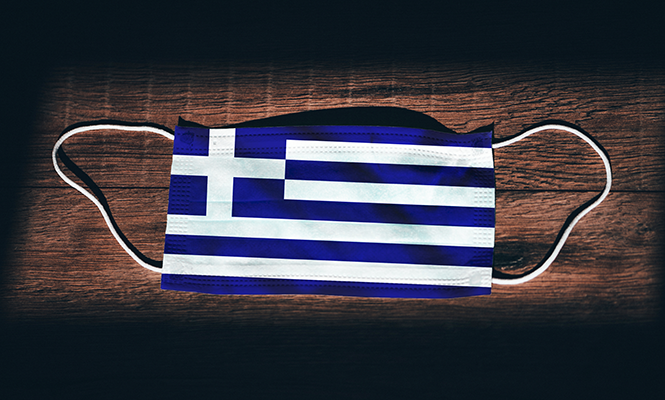The neurological implications of the SARS-CoV-2 virus have already started being reported in the literature, despite our limited knowledge on the biological behavior of this emerging corona-virus.1,2
A growing number of COVID-19 cases have been reported describing a wide spectrum of neurological manifestations.2 Encephalopathy has been reported in 7% of the patients in a series from Wuhan, China, while the respective percentage was significantly higher among severely affected, ICU-managed patients in France.1 Other neurological manifestations such as Guillain-Barre syndrome, encephalitis, or acute cerebrovascular disease have also been reported from hospitals around the world.1 In addition to the direct impact of the SARS-CoV-2 virus on the central nervous system, which remains to be accurately defined, the COVID pandemic has undoubtedly a great, indirect impact on the overall management of patients with neurological conditions.2
Indeed, the outbreak of the COVID pandemic dramatically changed the neurosurgical practice around the world, and Greece was no exception to this. The small number of ICU beds (557 ICU beds for a population of 10.7 million people), the limited ICU human resources, along with the inherent structural deficiencies of the public National Health System, greatly exacerbated by the preceding financial crisis (2009-2019), were situations that made the management of the COVID pandemic for Greece challenging. The initial wave of the pandemic (March-May 2020) was successfully managed with a very limited number of COVID-19 associated deaths. However, during this period there was a pause of any elective neurosurgical activity (at least in the public hospitals), with management of exclusively neurotrauma and acute neuro-oncological cases. Despite the increased demands of ICU beds during this period, there were no incidents of suboptimal neurotrauma case management, even in the Athens metro area, where the number of COVID cases was increased. Interestingly, the implementation of a general lockdown resulted into a quite significant decrease in the number of neurotrauma cases.
There is no doubt that the causalty of this period was functional neurosurgery and spinal surgery; as the vast majority of these subspecialties cases are elective, all of them had to be postponed. This volume of postponed cases, along with the increased number of new cases from the over-crowded outpatient clinics created an explosive situation, upon the end of the lockdown and the progressive release of all the COVID-19 related measures. Another consideration during this time was that the end of lockdown coincided with the start of the summer vacation period in Greece. The exhausted health professionals in the public hospitals required a respite from work, leading to difficulties with the management of these postponed cases. The resultant long neurosurgical waiting lists may become longer in the event of a second wave of the pandemic.
The paucity of neurosurgical activity had also a great impact on the education of our residents. Although the neurosurgery residents in Greece were not assigned to other areas of the hospital during the pandemic as in other countries, there was no practical educational activity for at least three months (March-May 2020). Even the theoretical education was absent for at least two months, until the emergence of webinars. The possibility of a second wave, along with the complete absence of any hands-on education due to the existing travel restrictions, may require the extension of the residency of our residents, as well as the re-designing of the neurosurgical core curriculum around the world. This decision making will certainly take into account the European Training Requirements for Neurosurgery, and the Required Minimum Numbers published by the European Union of Medical Specialists and the Accreditation Council for Graduate Medical Education. The necessity of incorporating virtual and simulation-based methodologies in the neurosurgical curriculum is more demanding than ever.
Unfortunately, the neurosurgical community was directly affected by the COVID-19 pandemic. Although the Greek neurosurgical community had no losses during the pandemic, the sadness from the loss of loved and well-esteemed colleagues from around the world has greatly affected us all. The psychological impact of the pandemic cannot be overemphasized. The insecurity, the depression from the lack of surgical activity, the isolation from the paucity of any academic activities, and the sadness from the losses of relatives, friends and colleagues may have deleterious effects for all of us and our daily practice. However, this pandemic may well be a strong stimulus for all of us for strengthening our self-obedience, altruism, and stamina. As neurosurgeons, we have to take a leading role in an international effort to transform the fear and the isolation of the pandemic to synergy and collaboration for accomplishing our main goals, to provide better quality neurosurgical services and professional education around the world. The Pandora’s box of the COVID-19 pandemic may well release the initiative for an international neurosurgical alliance for managing threatening situations, such as the COVID-19 pandemic.
References
[expand title=”View All”]
1. Neurological associations of COVID-19. Ellul MA, Benjamin L, Singh B, Lant S, Michael BD, Easton E, Kneen R, Defres S, Sejvar J, Solomon T. Lancet Neurol 2020; Jul 2:S1474-4422(20)30221-0. doi: 10.1016/S1474-4422(20)30221-0.
2. Neurological implications of COVID-19 infections. Needham EJ, Chou H-YS, Coles AJ, Menon DK. Neurocrit Care 2020; 32(3):667-671. doi: 10.1007/s12028-020-00978-4.
[/expand]








